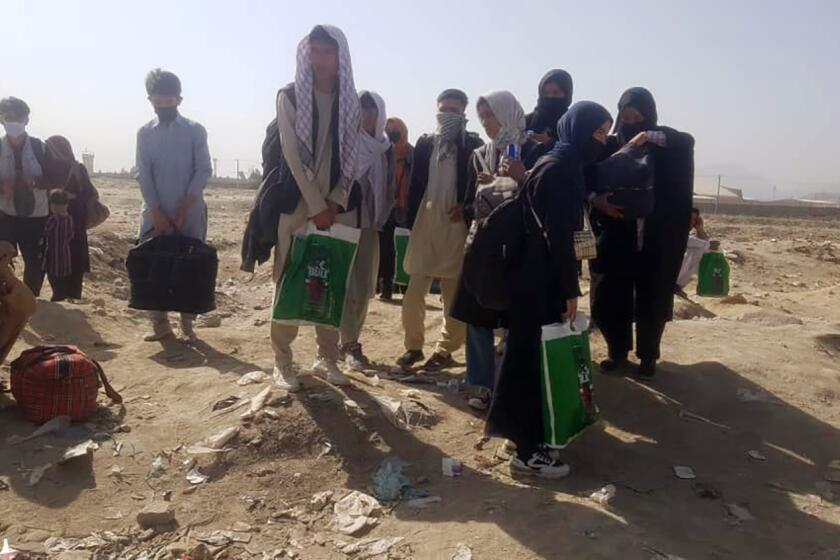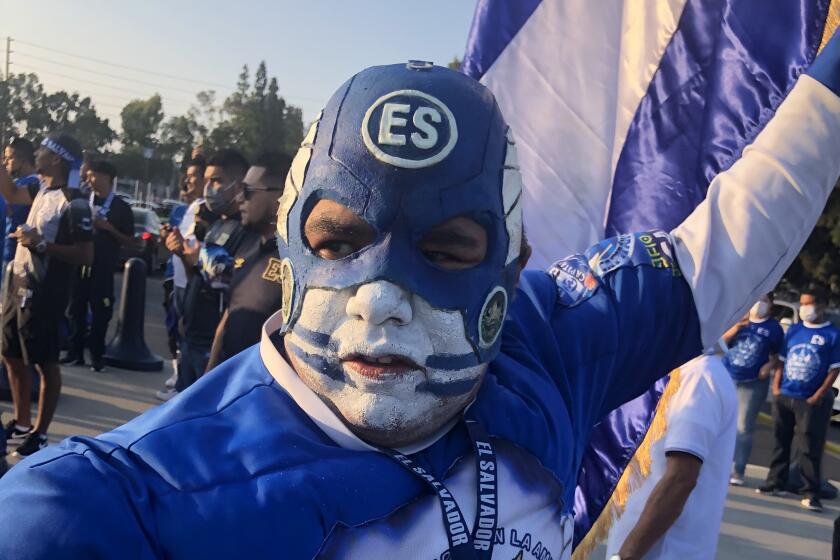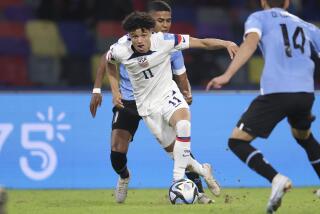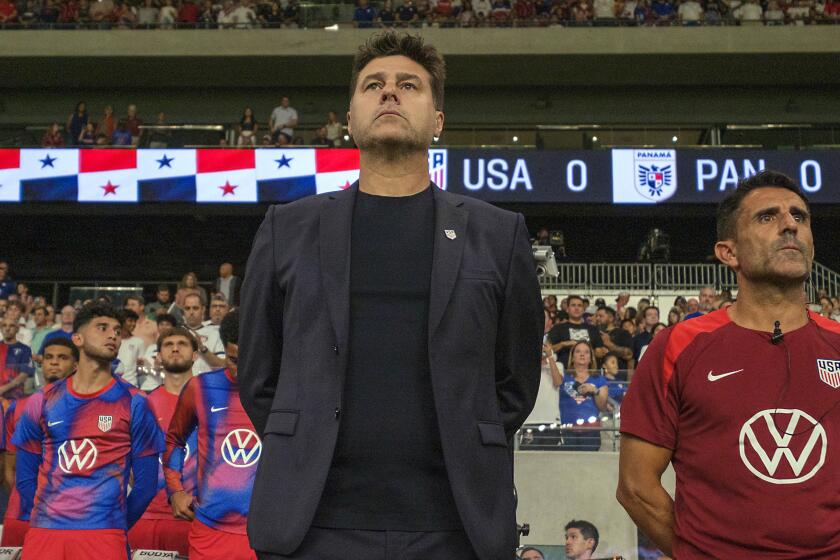U.S. soccer World Cup qualifying bid begins with tie on the road against El Salvador
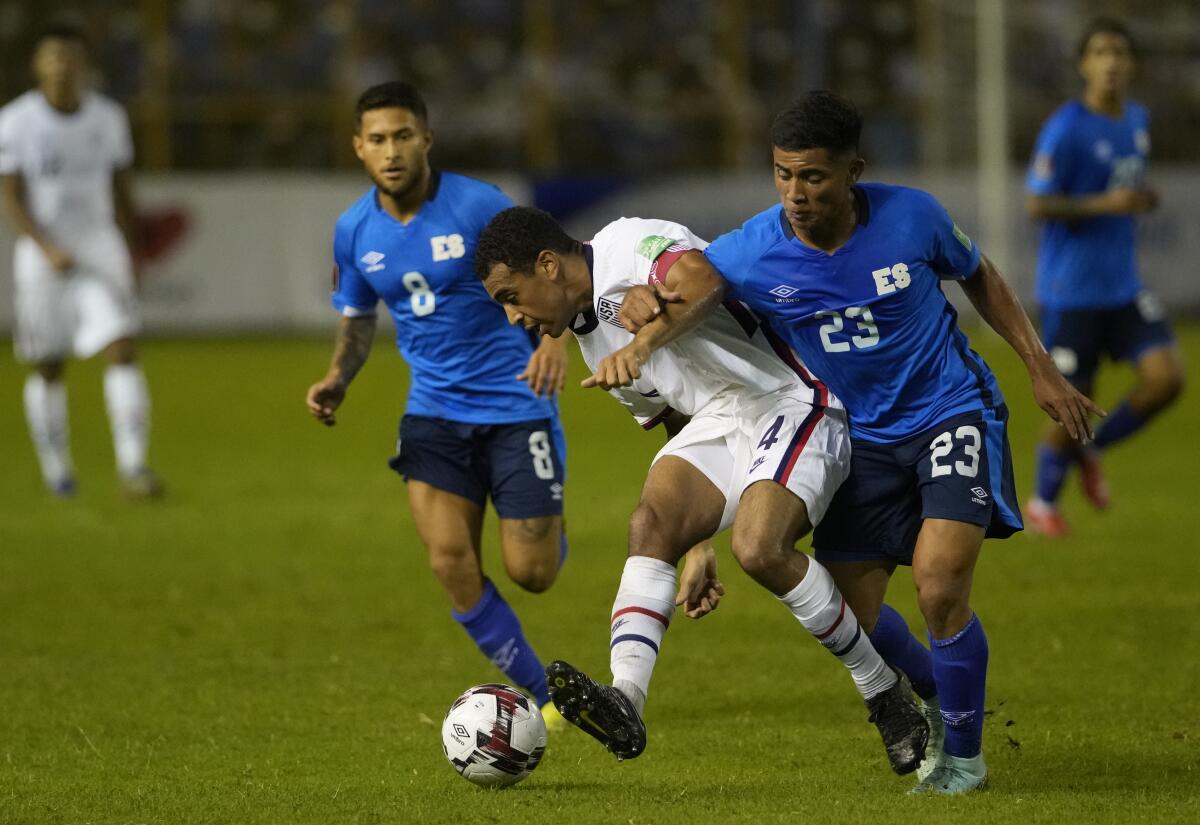
SAN SALVADOR — The U.S. was seeking redemption. El Salvador was seeking respect.
And both got a little of what they were after Thursday in their opening game of CONCACAF World Cup qualifying, one which ended in a scoreless draw.
For the U.S., Thursday’s match came nearly four years after the final game of the last qualifying tournament, a 2-1 loss in Trinidad that kept the team out of the World Cup for the first time since 1986. And though Thursday’s draw ended a pair of streaks for the U.S., which had won nine straight and 15 in a row against CONCACAF opponents, it did give the Americans an important point on the road, where points are difficult to come by in World Cup qualifying.
“You’re always trying to make sure that the group is ready for the challenge ahead of them. And, you know, in this case, it was a really good experience just to see what these games are about,” U.S. coach Gregg Berhalter said. “Until you’re actually in them, it’s hard to understand.
“So we got that game under our belt. We got a point and we move on.”
Most members of the Afghan women’s team, formed in 2007, were evacuated to Australia last week, but the girls, ages 14-16, and their families also could be targeted by the Taliban.
For El Salvador, which hasn’t played in a World Cup since 1982 — and hasn’t played in the final round of qualifying since 2009 — the draw showed it can hang with regional giants like the U.S., the No. 10 team in the world, according to FIFA.
However the team Berhalter started Thursday was the youngest the U.S. has used in a qualifier in 16 years. And it was missing a big piece in Christian Pulisic, who stayed home to continue his recovery from a bout with COVID-19.
That left defender DeAndre Yedlin as the only U.S. starter in El Salvador who also played in the loss to Trinidad, joining nine players who were making their first appearance in a CONCACAF qualifier.
And they were greeted by fireworks, a military flyover and a unnerving overflow crowd at Estadio Cuscatlán, the largest soccer venue in Central America.
Attendance was supposed to be limited to 29,000 but that didn’t happen, with nearly twice that many people filling the aging concrete-bowl stadium, many standing in aisles and stairways.
“Trust me, I’d rather play against England and France… The energy is completely different … you need to come ready to battle … you can’t be naïve,” U.S. captain Tyler Adams said.
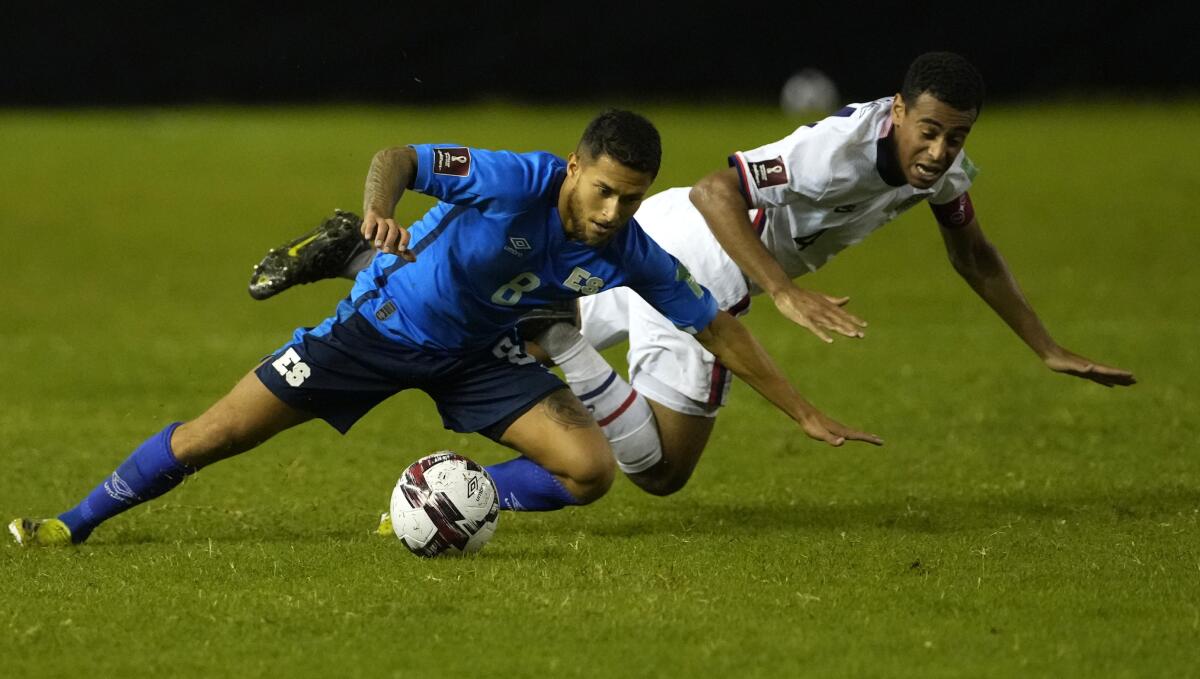
Most of those fans came to see a Salvadoran team that has been rejuvenated under new coach Hugo Pérez, a former U.S. World Cup player. Since Pérez, who was born in El Salvador, took over in April, La Selecta has played with energy and confidence — not to mention a half-dozen players who, like Pérez, are dual nationals from the U.S.
As a result, the game was almost as even as the final score, with El Salvador earning a slight advantage in time of possession but getting outshot by the U.S. 13-7.
Pérez’s team started on the front foot and stayed there. dominating a first half that could have been different if any of the three near misses El Salvador put over the bar were on target.
La Selecta got close again in the 57th minute when U.S. keeper Matt Turner made his only save of the night, a diving stop at the far post on Eriq Zavaleta’s header off a corner kick. Turner finished with his seventh shutout in eight games with the U.S., but Thursday’s was the first of the eight he didn’t win.
As good as the start was for El Salvador, it was just that, a start. The current round of regional qualifying, which has been both expanded and condensed by the pandemic, figures to be the most challenging ever.
Hugo Pérez, a Salvadoran who played for the U.S. national team, took over as coach of La Selecta in April and has thrived after recruiting Salvadoran Americans in earnest for the first time.
The COVID-19 outbreak forced CONCACAF to alter earlier rounds of qualifying and expand the final one by two teams, making it an eight-team competition. The tournament was then condensed, with 14 qualifying matches squeezed into a seven-month window. Four years ago, the 10-game CONCACAF tournament was played over 12 months.
The U.S. faces the same road, of course — one that is normally potholed and treacherous. The U.S. didn’t win away from home in the last qualifying cycle, a big reason why it didn’t go to Russia, and it has won just eight times in 31 road qualifiers since 1998, the last coming in 2013.
That number didn’t grow Thursday, making it something of a victory for the U.S., which now has two days to regroup before facing Canada in Nashville, Tenn., on Sunday.
“There’s a lot of things to improve on,” Berhalter said. “The fight was good, the intention to win the game was good. But we’ve got to get better.”

